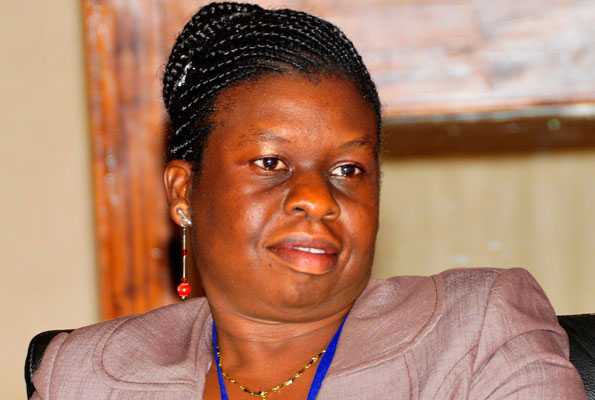The Uganda Revenue Authority (URA) will soon begin preparations for the establishment of a sustainable national revenue mobilisation strategy to boost domestic revenue collections, targeted to hit the Shs15 trillion mark in the financial year 2017/18.
According to a release by the URA Commissioner General Ms Doris Akol, the strategy will embrace a holistic view of policies, laws, administration and tax culture.
“It is one that takes on a whole of Government approach and one which will get us all rallying behind the cause of increasing our domestic revenues,” Ms. Akol, who said the URA colled Shs.12.8 trillion in the finanacial year 2016/17, said.
Further, Akol said that voluntary tax compliance has improved, with growth in revenue collections in the country averaging 16.07% over the past four financial years “with a real increase of shshs4.521 trillion being sent to the national treasury.”
“We …thank you because we saw many of you willingly comply with your tax obligations,” she said.
According to Akol, this year’s tax as a percentage of Gross Domestic Product (GDP) has increased to a projected 14.2%, registering an average increase of 3.8 percentage points over the past four-year period.
“URA is particularly encouraged by the growth in the tax to GDP ratio this past financial year by 0.7% points over and above the targeted annual growth of 0.5%,” she noted, adding that the good performance in the revenue collections is also a return on investments made over the years to make the tax administration more efficient.
Akol noted the taxes have significantly contributed to the growth of the
economy and led to improvements in service delivery and the quality of
life of Ugandans.
While presenting the 2017/18 national budget, the Minister of Finance,
Matia Kasaija said that several roads were tarmacked using
locally-generated tax revenue. These include Kampala-Mityana;
Kampala-Masaka; Kampala-Kafu-Karuma-Gulu; Jinja-Kamuli; Iganga-Kaliro; Tororo-Mbale-Soroti; Ishaka-Kagamba and Mbarara-Kikagate
and Matugga-Semuto.
Akol added that local revenues have supported sectors such as water and sanitation, education, health, agriculture and other sectors.
“These are testimony of why growing the country’s tax revenue should be the goal of everyone and not only of those involved in tax policy and administration,” she says.
Akol says that some of the changes URA has introduced include the Centralized Document Processing Centre that has quickened the process of clearance of goods through customs.
“We will continue with our tax education drives and community engagements of all clients in their various segments. Our desire is to lessen the burden of tax payment on the just over one million taxpayers by bringing on board many more eligible taxpayers,” she
said, adding: “We will continue investing in systems, quality people and non-bureaucratic processes to ensure efficient and expeditious service delivery.”







